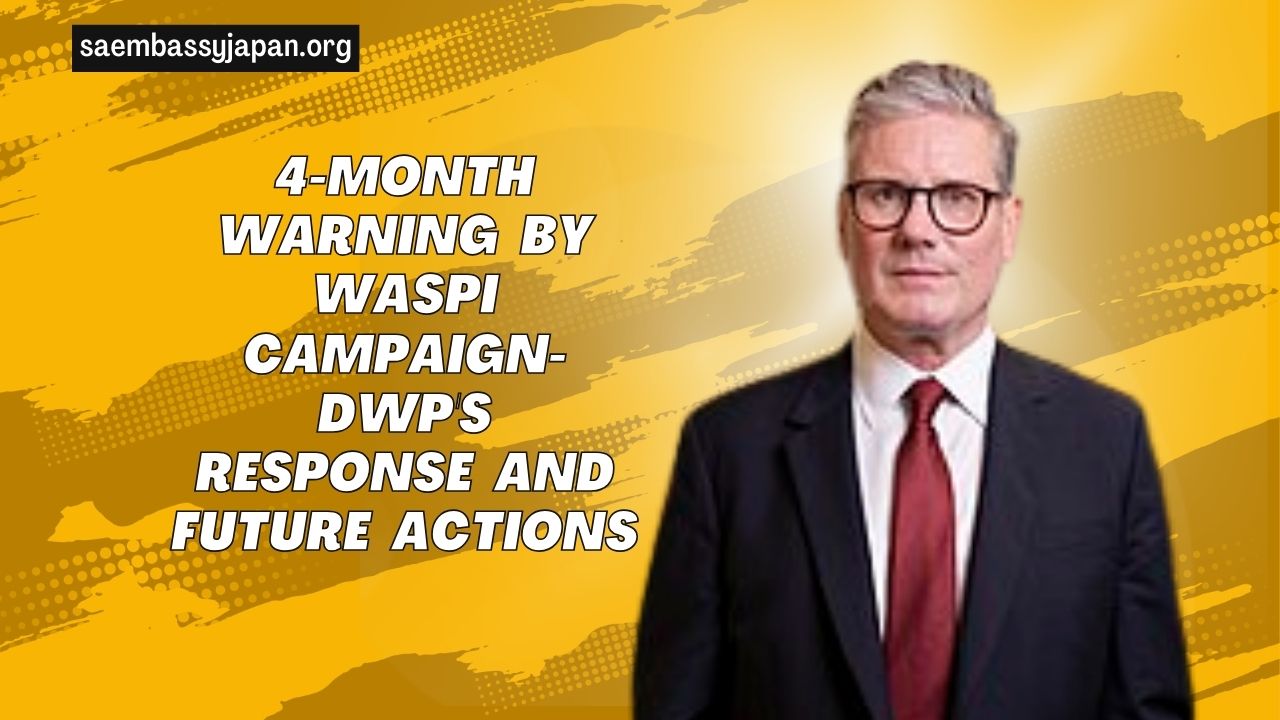The Women Against State Pension Inequality (WASPI) campaign has been a beacon of hope for many women whose financial stability was disrupted due to the government’s sudden change in the state pension age.
The decision to raise the pension age for women born in the 1950s was implemented without adequate communication, leaving many women unprepared and struggling to make ends meet.
This article delves into the latest developments in the WASPI campaign, the response from the Department for Work and Pensions (DWP), and what actions are being taken in this ongoing battle for compensation.
The WASPI Campaign and Its Origins
The WASPI campaign began in response to the government’s decision to gradually increase the state pension age for women born in the 1950s.
Many of these women received little or no prior warning about the change, leaving them in financial distress. Women were forced to work longer than expected or were denied pensions they had anticipated, resulting in emotional and financial hardships.
The campaign’s central aim is to seek compensation for the women affected by these abrupt changes.
14-Month Wait for Judicial Review Decision
Campaign chair Angela Madden highlighted the potential length of time it could take for a judicial review to reach a final decision.
According to Madden, the process might take up to 14 months, indicating the slow pace at which this case is advancing through the legal system. She emphasized that the process is not quick, and there will be periods of waiting between key stages.
“There’s a lot of work that’s gone into getting us this far,” Madden stated, explaining that while there may be delays, the team is nearing the point where the necessary legal papers will be filed.
DWP’s Response and the Lack of Compensation
In response to the WASPI campaign’s claims, the DWP and government have firmly rejected the idea of compensation.
They argue that the majority of women were aware of the changes to the state pension age, with evidence showing that by 2006, 90% of women born in the 1950s knew about the adjustments.
A government spokesperson explained that the £10.5 billion compensation scheme would unfairly burden taxpayers and that only a quarter of women recalled receiving notifications about the pension changes.
Despite this response, the WASPI campaign continues to push for compensation, as many women argue that they were not adequately informed.
A significant number of women were left without the support they had expected, which has led to severe economic hardship for many.
The Ombudsman Report and Its Impact
The parliamentary and Health Service Ombudsman conducted an investigation into how the DWP managed the pension age changes.
The report found that the DWP had failed to notify women in a timely manner, with some women receiving notices only 28 months after the decision had been made.
The Ombudsman’s recommendation was that compensation should be given to affected women, with amounts ranging from £1,000 to £2,950 based on the extent of the impact.
This recommendation has given the WASPI campaign new hope, but the government remains unmoved in its stance against compensating the affected women.
Government Meetings and Future Actions
In a meeting with government ministers, Jane Cowley, a director of the WASPI campaign, described the discussions as “productive.”
While she remains hopeful that the government might reconsider its position, the response from the DWP has been clear—no compensation will be provided. This has only fueled anger among the WASPI women, as many face critical financial challenges.
Key Information and Timeline of Events
| Event | Details |
|---|---|
| Campaign Launch | WASPI campaign began due to sudden increase in pension age |
| Ombudsman Report | DWP failed to notify women adequately, recommends compensation |
| Government Response | DWP rejects compensation, citing majority awareness |
| Judicial Review Timeline | 14 months for a decision, with several stages of waiting |
| Expected Compensation | £1,000 to £2,950 per woman, depending on the impact |
The Road Ahead: What’s Next for the WASPI Campaign?
Despite the legal and bureaucratic hurdles, the WASPI campaigners remain committed to their cause. The lengthy process and the ongoing uncertainty have created an environment of frustration and anger, but the fight continues.
As the judicial review process unfolds, many hope for a favorable ruling that could lead to the much-needed compensation for those women who were unfairly impacted by the pension age changes.
This article covers the latest developments in the WASPI campaign, focusing on the 14-month warning, the government’s response, and the ongoing efforts to secure compensation for those affected by the state pension age changes.
FAQs
What is the WASPI campaign?
The WASPI campaign stands for Women Against State Pension Inequality, advocating for compensation for women impacted by the pension age changes.
How long will the judicial review take?
The process could take up to 14 months, with several stages of waiting involved in the legal proceedings.
Why did the government reject compensation?
The government argues that most women were aware of the pension age changes, and providing compensation would place an unfair burden on taxpayers.
